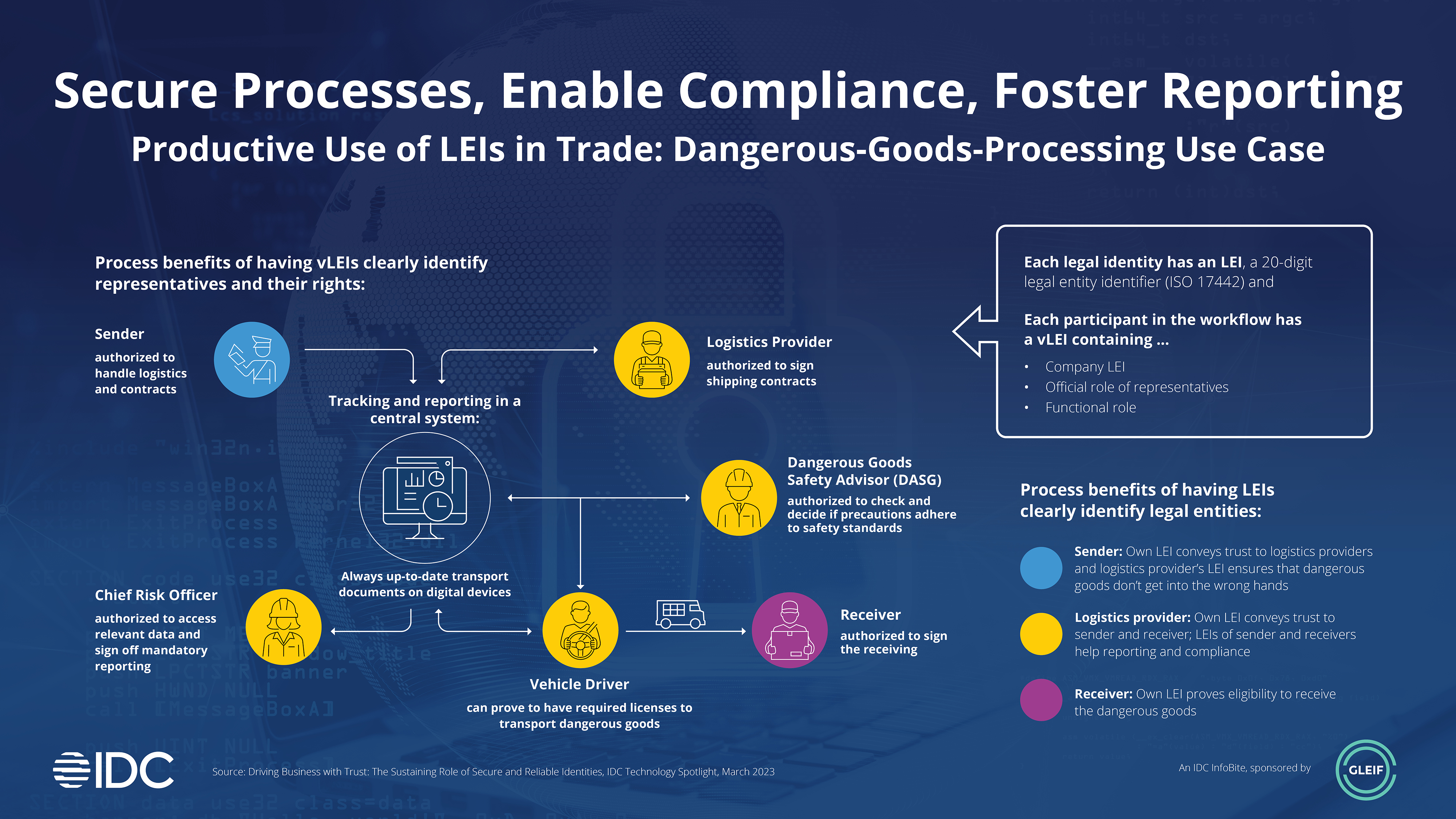Global Value Chains
Latest News:
B20, Finance & Infrastructure Policy Paper, September 2024, recommends LEI adoption across all financial transactions involving MSMEs to simplify international trade (Recommendation 3.1.3)
A trusted and reliable method of identifying legal entities within digital environments is a vital prerequisite to secure, seamless, and well-functioning global value chains.

The digital revolution has transformed international trade, bringing both opportunities and challenges. Disruptions like the COVID-19 pandemic and geopolitical events have highlighted issues such as fragmented supplier verification processes, lack of transparency, and operational inefficiencies. These problems can disrupt the flow of goods and erode trust between partners. However, as noted in the International Chamber of Commerce (ICC) UK – Scaling the Use of Digital Identities in Trade report, improving information and transaction processes in international trade could save between $20 billion to $100 billion by reducing information and transaction costs.
The ICC Digital Standards Initiative, in its KTDDE report, recommends LEIs be utilized in the digital systems of exporters, importers, financial institutions, and logistics providers. This will help develop digital platforms that work with many major standards. The report also demonstrates just how vital entity identification is – 25 percent of the key data elements across 36 core trade documents are all associated with parties involved with trade. The LEI and vLEI are the foundational enabler for trade digitalization by offering the only globally interoperable, platform agnostic organizational identity solution.
The vLEI will change trade by enabling authentic data transfer. This innovative credential, used in digital wallets, adheres to the "never trust, always verify" principle, adding trust to supply chain organizations. For tasks like onboarding, trade finance, and customs filings, data between parties can be signed and verified using a global protocol. The vLEI's Authentic Chained Data Container (ACDC) specification ensures transactions can be securely linked.
Businesses are now building trust programs to manage digital identities. Using LEIs and vLEIs, businesses can significantly improve global supply chains, make informed decisions, reduce financial and reputational risks, and build a strong foundation for Environmental, Social, and Governance (ESG) efforts. Companies have now the opportunity to leverage international standards like the LEI to unambiguously identify the parties involved in global trade transactions and their electronic trade documents like eBoL or invoicing. As noted in the “Scaling the use of digital identities in trade” report, “the LEI is one point to locate among tons of data, irrespective of the geographical location of the clients.”
Read on to learn about these use cases and GLEIF’s engagements based on UN/CEFACT BUY-SHIP-PAY’s model:
The Value of the LEI and the vLEI
| Buy | Credore: Revolutionizing Trade Finance: XDC & Credore's Blockchain Impact (watch video now) |
| Japan-eSeal: Boosting Trust and Interoperability in Japan – EU Invoice Reconciliation | |
| Ship | GLEIF, WaveBL and TradeGo: Integrating Legal Entity Identifiers and verifiable Legal Entity Identifiers into electronic Bills of Ladings |
| United Nations Economic and Social Commission for Asia and the Pacific (UNESCAP): Trends in Digital Identity Management for Cross-Border Paperless Trade (watch video now) | |
| Pay | XDC Trade Network: Facilitating faster access to trade finance liquidity with digital identity and digital Promissory Note |
| MonetaGo: Leveraging standardised data points to alert financiers of potential fraud |

